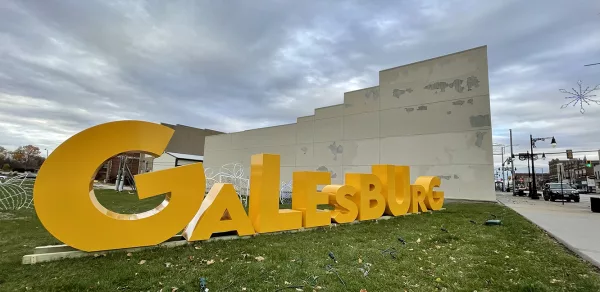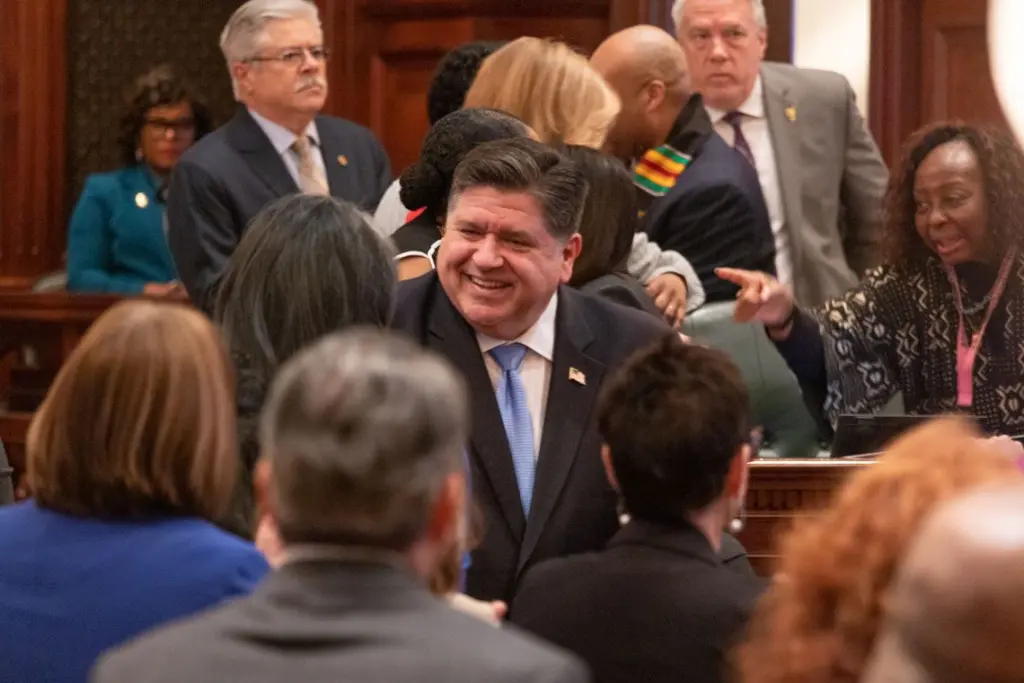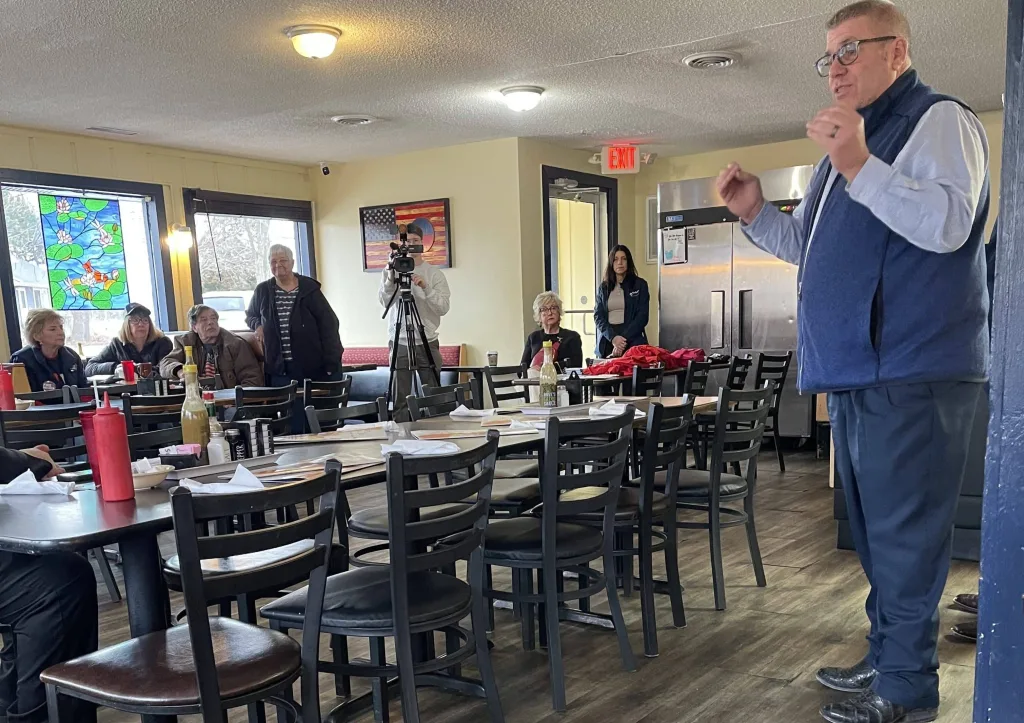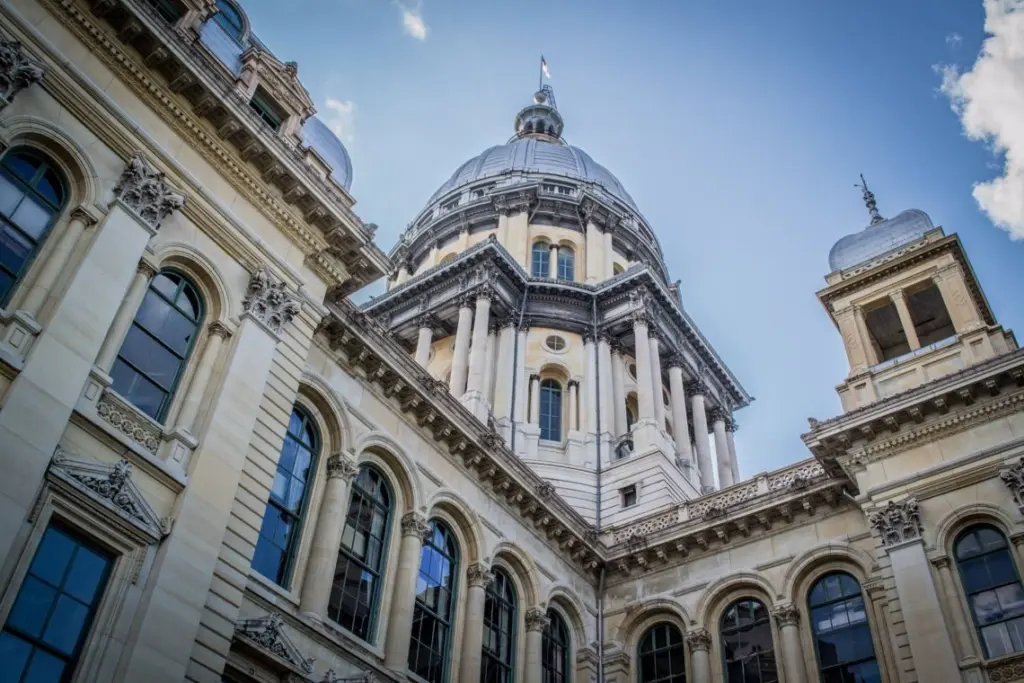City officials unveiled a proposed $76.3 million budget for fiscal year 2026 during a work session Monday at City Hall, featuring a drop in the property tax rate to its lowest since 2008 amid ongoing challenges with public safety pensions and infrastructure needs.
The session outlined a timeline for finalizing the budget, with reviews in October, public input in November, and approval in December.
City Manager Eric Hanson tells WGIL, “I was pleased with how Monday’s presentation turned out. Our goal was to help Council members to better understand the mechanics of how we run the city.”
The plan follows council financial policies, focusing on core services while addressing rising costs. The full draft budget is displayed at the end of this story.
Key changes: Lower taxes, Grocery Tax ends
The city relies heavily on taxes, which make up 52% of all revenues, split into state-collected, locally collected, and property taxes, according to the presentation’s tax revenue breakdown.
The property tax rate is set to decrease—the lowest since 2008—potentially saving homeowners money, though rising property values might offset some benefits. Of the property taxes, School District 205 receives nearly 50%, the largest share, to fund local schools, followed by Knox County at 13.34% and the City at 10.99%.
The budget calendar, shared during the session, details the process from departmental forecasts in May-June to final approval in December.
Hanson noted that nearly three out of every four dollars spent from the general fund go toward police and fire protection, along with public works, infrastructure, and roads—accounting for 39% on police, 27% on fire, and 11% on public works.
Public Safety pensions: A top priority
Investments and challenges ahead
The budget includes new investments in infrastructure, such as road repairs and park upgrades, plus grant-funded projects like a community center. Personnel costs, including salaries and health insurance, are also increasing.
“While we don’t have the funds to do everything we would like, we’ll continue to invest in good quality services that will move the community forward,” Hanson told WGIL.
City leaders, as noted in the “Big Picture” topic, highlighted challenges like aging infrastructure and uncertain tax revenue as major concerns moving forward.
The council will refine the draft in the coming months, with details available on the city’s website once posted.
Mayor’s Comments
Note: The following comments from Mayor Peter Schwartzman were received after the initial publication of this article on October 1, 2025.
What are the biggest highlights/takeaways from the 2026 draft budget presented at the work session?
Our financial team put together a comprehensive look at all city revenues and expenses. The depth and detail provided was impressive. I think, first and foremost, the presentation is an important component of transparency in government, something I value very much. I would highly recommend all local residents to take some time to go through the slides.
Nothing in the slide show surprised me but I am pretty well versed in City affairs. Galesburg residents may not be aware of the following:
- The state will be eliminating a 1% tax on groceries starting in 2026. They left it to municipalities to determine if they wanted to have such a tax. We, unlike most of our neighboring cities, have decided NOT to reinstate it. This will save families real money on groceries. This decision will however reduce the City’s income by approximately $600,000. We are factoring this in our 2026 budget and making adjustments/cuts where appropriate.
- We have done remarkably well the past five year fully funding our public safety pensions. This is a very important action to ensure Galesburg’s fiscal health in the future.
- Our 2026 budget will be balanced and will have the lowest property tax rate since 2008! We are able to do this because we have been very fiscally responsible over the past few years and we have seen property value evaluations grow, also indicative of a thriving community.
- The City has been very successful receiving grants to expand/build parks, beautify neighborhoods, and add amenities. This is due to the hard work of City workers and administrators.
What do you see as the biggest challenges for the city’s finances moving forward?
As noted during the meeting, we have 80+ miles of roads in the City and repairing them is increasingly expensive. Yet, we are going to continue to make significant contributions in this area.
We are looking forward to making major investments in new housing of many different types. I look forward to getting these projects off the ground!









